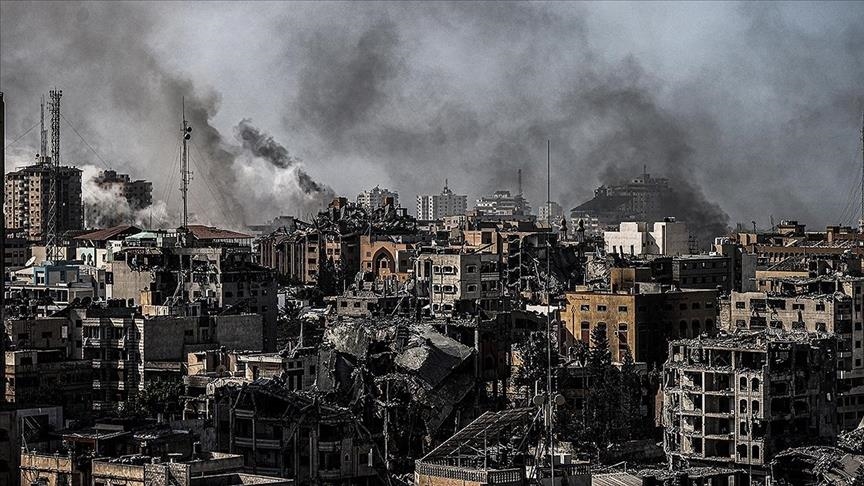In a statement, the media office of the Gaza-based government said some 40,000 house units in the besieged enclave were completely destroyed by the Israeli army.
It also added around 32,000 tons of explosives were dropped on Gaza since the start of the Israeli assault on Gaza on Oct. 7.
The estimated preliminary losses in the housing sector and infrastructure are estimated to be $2 billion each, according to the government media office.
Israel has launched relentless air and ground attacks on the Gaza Strip since a cross-border attack by the Palestinian group Hamas on Oct. 7.
Over 10,800 Palestinians, including 4,300 children and 2,900 women, have been killed since the recent fighting started. The Israeli death toll, meanwhile, is nearly 1,600, according to official figures.
The ongoing conflict in Gaza could set back Palestine’s economy by as much as 16 years, according to a report released Thursday.
Titled Gaza War: Expected Socio-Economic Impacts on the State of Palestine, it outlines a grim forecast for the Palestinian economy due to the comprehensive siege of Gaza by Israel, leading to severe economic disruptions.
It was issued by the United Nations Development Programme (UNDP) and the Economic and Social Commission for Western Asia (ESCWA).
A sharp decline is expected in the Human Development Index (HDI), setting the State of Palestine back by between 11 and 16 years, depending on the intensity of the conflict.
The report revealed that around 390,000 jobs have already been lost since the start of the war. It said early estimates indicate that the gross domestic product (GDP) loss in 2023 could range between 4% and 12% and between 4% and 9% of GDP in 2024 compared with pre-war estimates. These figures are dependent on the conflict’s duration.
Poverty is also expected to rise sharply by between 20% and 45%, depending on the duration of the war, it said.
The economic impact of the conflict is expected to exacerbate humanitarian crises, including widespread displacement.
“The economic consequences of the war will have direct and indirect effects on the humanitarian situation, and vice versa, including large-scale displacement,” the report added.
It also cautioned that economic recovery in Gaza following a cease-fire will not be immediate, citing large-scale destruction and uncertain access to resources.
“The regional impacts of the Gaza war are multi-layered and dependent on the scale and scope of the military escalation,” the report warned.
The report also revealed that at least 45% of the housing stock in Gaza has been reportedly destroyed or damaged by Israeli bombardment.
“By 3 November 2023, at least 35,000 housing units had reportedly been completely destroyed, while about 212,000 units had been partially damaged,” according to the report.
